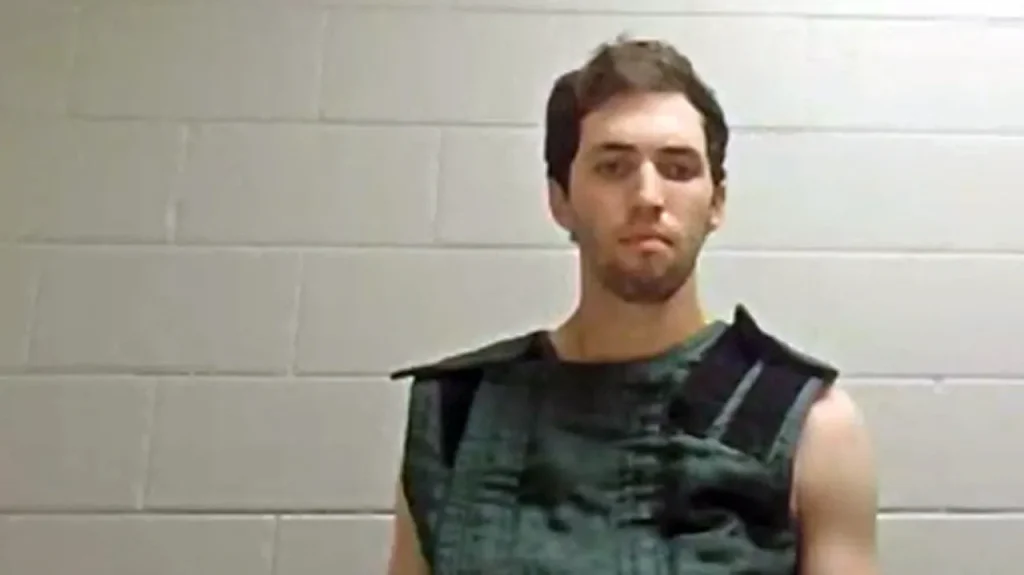Utah County Grapples with Costs and Consequences of Charlie Kirk Murder Case
In the aftermath of the shocking assassination of Turning Point USA founder Charlie Kirk, Utah County officials find themselves at the center of a complicated legal and financial situation that tests constitutional principles and community cohesion. County Commissioner Amelia Powers Gardner recently revealed that the county has already spent over a quarter of a million dollars on the case against accused shooter Tyler Robinson – with expectations that costs could balloon to approximately $5 million over the next 18 months. This financial burden comes at a time when the county’s reserve fund for aggravated murder cases had dwindled to just $31 before the incident occurred, putting significant strain on county resources and taxpayers.
“Under the Constitution, we have a right to a competent defense,” Powers Gardner explained, addressing the frustration of constituents who question why their tax dollars must fund Robinson’s defense. She emphasized that ensuring a fair trial isn’t just constitutionally required – it’s financially prudent in the long run. Any perception that the county provided an inadequate defense could lead to costly appeals that would ultimately extract more from taxpayers than doing it right the first time. The high-profile, politically charged nature of the case created unexpected challenges when every local attorney declined the county’s standard contract, forcing officials to seek specialized death-penalty-certified defenders at premium rates. Despite attempts to join Utah’s Aggravated Murder Defense Fund to offset these costs, the county’s application was denied, leaving local taxpayers to shoulder the burden – approximately $5 per taxpayer over the course of what is expected to be a two-year legal process.
Beyond the direct legal expenses, the case has generated substantial operational costs that continue to mount. “Just housing Tyler Robinson in our jail is very expensive,” Powers Gardner noted, detailing additional security measures including armored vehicles for prisoner transport, clearing buildings around the courthouse during hearings, and implementing the county’s first-ever active-shooter training programs. With $250,000 already spent in just six weeks – before court proceedings have even begun in earnest – county leaders are bracing for the financial impact to continue growing as the case proceeds toward trial on charges of aggravated murder, which potentially carries the death penalty.
The commissioner also spoke to her responsibility in helping heal a deeply divided community after a tragedy that transcended political boundaries. “Our community had a horrific event take place, and that horrific event has affected people across party and ideological lines,” Powers Gardner reflected. “My job is also to be a leader for my community… You have to keep in mind, not everybody who was traumatized that day was a Charlie Kirk supporter. There were hundreds of people there who were protesting at that event and were just as traumatized that they saw a father and husband murdered.” She emphasized that local government’s role isn’t to play politics but to care for all citizens – those who supported her politically and those who didn’t.
The case details are stark and disturbing: prosecutors allege Robinson used his grandfather’s Mauser .30-06 rifle to position himself on a campus rooftop before firing a single, fatal shot into Kirk’s neck while the conservative commentator spoke at a Utah Valley University event on September 10th. The high-profile nature of the victim has brought national media attention to Utah County and created logistical challenges that local officials typically don’t face. Governor Spencer Cox has been “incredibly supportive,” according to Powers Gardner, personally engaging with county leadership in the days following the shooting to offer state resources and guidance.
As the case moves forward, Utah County officials must balance their constitutional obligations with fiscal responsibility and community healing. The financial impact, while significant, represents the tangible cost of upholding constitutional principles during an emotionally charged and politically divisive moment. Powers Gardner’s perspective highlights the often-overlooked complexity faced by local governments when national tragedies unfold in their jurisdictions: they must simultaneously manage practical considerations like security and legal costs while also helping diverse communities process grief and trauma that crosses ideological lines. As Robinson’s case progresses toward trial, these challenges will likely continue to test Utah County’s resources, leadership, and commitment to constitutional principles in the pursuit of justice.


